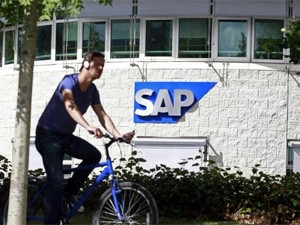
The State IT Agency (SITA) is being taken to task by a South African software company over its alleged practice of only awarding tenders to international companies - to the detriment of SA.
SITA has hit back, denying it eschews local software companies in favour of international vendors and pointing out the tender process was an open one. The claims, made by iAdapt MD Gilbert Parsons, seem to back up allegations made almost five years ago by the Black IT Forum - which has since disappeared - that black companies are not benefiting enough from SITA tenders.
Parsons' claims revolve around the current integrated financial management system (IFMS) tender, which closed on 30 January. ITWeb understands this tender has already raised the ire of industry players over its stipulation that only software vendors or original software manufacturers can apply, which precludes local service providers from participating.
Not fair
IFMS, which has already cost R1.2 billion, dates back to 2005, when it was first approved by Cabinet, and the latest tender is, according to Parsons, its third attempt to get the project off the ground.
SITA explains it had experienced challenges with its initial attempt to integrate disparate systems, which led to a series of independent reviews of the project and the decision to change its architecture to a tier one commercial, off-the-shelf, ERP architecture.
"It would be fair to say this decision reduced the number of potential software vendors able to deliver on these requirements. It would, however, be inaccurate to believe the bulk of the revenues associated with implementation of this solution would leave the shores of this country," says SITA.
Parsons argues SITA is set to award this tender to SAP, which he says is a fait accompli after SAP (in conjunction with a local consortium) won the right to install the human resources element in 2008. He argues SAP is not the only tier one commercial off-the-shelf ERP product available in SA, although iAdapt did not respond to the tender "as a result of the previous two being cancelled/changed/postponed - and each time this has cost our company in excess of R250 000".
What should be done, says Parsons, is a review of the local software sector to determine which companies can fill SITA's needs, as home-grown software developers are dwindling "as a result of the continued ignoring of locally produced software". He argues the spirit of SITA and the Small Business Development Act requires government to support the local sector.
No favourites
SITA's previous tender, published in the 2013/14 financial year, attracted only two bids from India's 3i Infotech South Africa and SAP. The recently-closed bid attracted four offers, which SITA says are being evaluated. "There is no preferred vendor, hence the open tender. All tender responses received will be subjected to the same evaluation method and criteria by a selection panel comprising of representatives of various government organisations.
"Furthermore, the evaluation will be subjected to probity and audit processes," says SITA. It adds most of the spending will be on services that can be sourced locally.
SITA is aware of "a" complaint around tenders being costly to respond to, but notes it does not discriminate against local software vendors, which should "assess if they qualify to respond to a bid prior to incurring costs on bid preparation". iAdapt makes the point that its ERP system is in use at several government and private sector entities.
ICT industry expert Adrian Schofield, noting it is doubtful a local software company would be up to the task of implementing IFMS, says SITA is between a rock and a hard place. "It has to buy software that is fit for purpose and which will operate reliably enough in the complex environment that is SA government operations. It cannot take chances that the supplier or the product will not be robust and sustainable."
Share